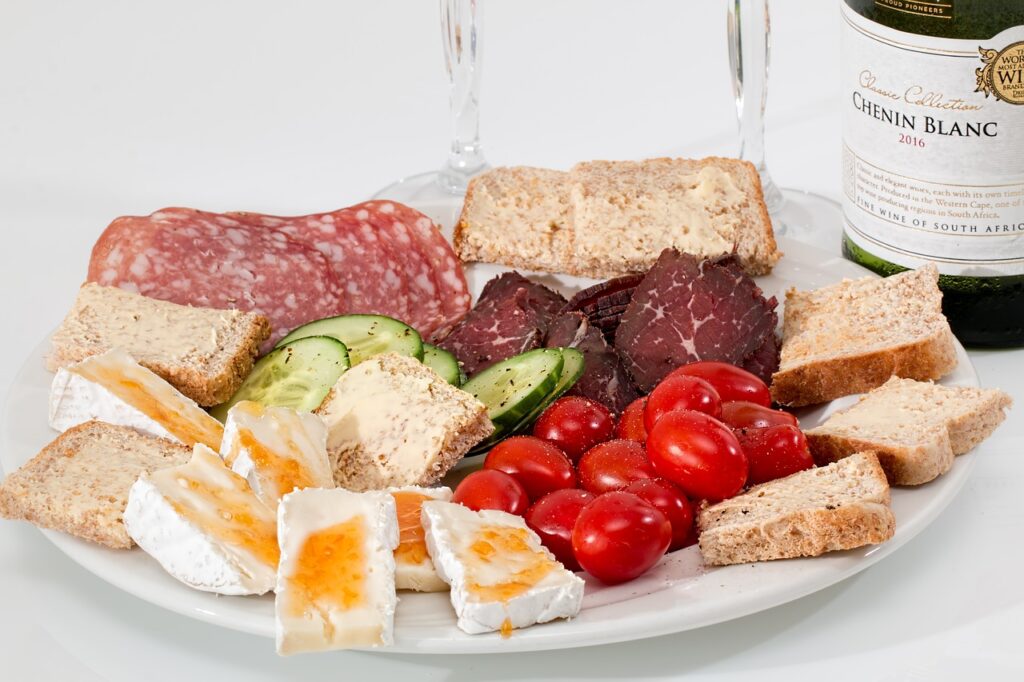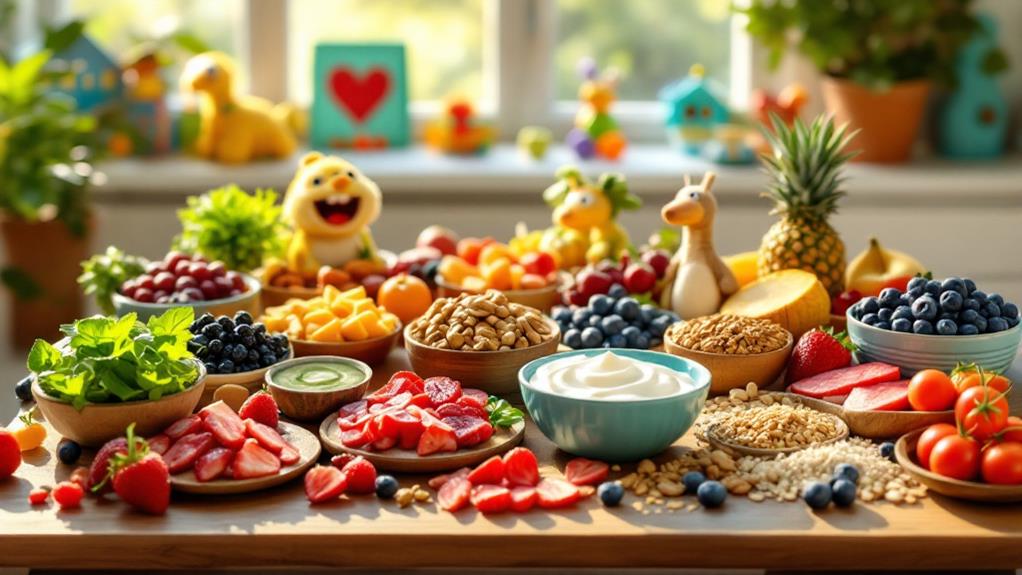Boosting your child’s brain power starts with proper nutrition. Emphasize plenty of foods containing omega-3 fatty acids, including salmon and walnuts; fruits that are high in antioxidants, such as blueberries and strawberries; whole grains, which give longer-term energy, like brown rice and quinoa; and lean proteins from chicken and eggs, which will aid both body and brain growth. And let’s not forget hydration-water is the key to concentration and learning. Avoid high-sugar snacks and processed foods, which will ultimately reduce their ability to focus. Consulting a paediatrician in Brisbane can also provide personalized insights into the best dietary practices for your child’s brain development, especially if they have specific health needs or dietary restrictions. By embracing these nutrition strategies, the child’s brain is stimulated to grow and will make some amazing discoveries.
Key Nutrients for Brain Health
Nutrients will play a major role in giving support to the health of the brains of your children. Certain vitamins and minerals perform an important role in neurotransmitter support, which will deal with effective communication between the brain cells.
These nutrients facilitate optimization of brain function, hence promoting cognitive development. Omega-3 fatty acids, though not in this instance, are also crucial; they support structural integrity in the brain.
Antioxidants found in bright fruits and vegetables protect the brain against oxidative stress, furthering cognitive growth.
Then, a well-rounded diet focusing on these nutrients will help in developing your child’s learning abilities. In giving him more of these brain-enhancing foods, you are building his potential for success in independence with an opening world.
Omega-3 Fatty Acids
With micronutrients, such as B vitamins and iron, playing their role in laying the groundwork within the brain, omega-3 fatty acids have carved out a niche for themselves as the biggest overall players in the cognitive function department.
These fatty acids are extremely crucial for brain development and enhance memory and learning abilities. Omega-3 sources are found in fatty fish such as salmon and sardines, while plant-based sources come from flaxseeds, chia seeds, and walnuts.
These included foods in the diet of your child will help him to keep his brain at its optimal state and let him concentrate better on things.
With a balanced intake of omega-3s, not only are growing minds nourished, but such deficiencies as attention deficits are combated.
Antioxidant-Rich Fruits
Antioxidant-rich fruits included in the diet of a child go a long way in enhancing the health of his brain, along with his general well-being. Blueberries, strawberries, and blackberries rank among those fruits that are very rich in antioxidants, heavily packed with vitamins and phytonutrients which shield the brain from oxidative stress.
Research shows that these berry benefits boost memory and cognitive function. By adding different colorful fruits to meals and snacks, you give your growing mind the nutrition that it needs.
Blend berries into a smoothie, add them to yogurt, or serve fresh. These fruits not only help gratify your taste buds but help set up your child for lifelong mental abilities.
Bring in those colors for a healthier, happier brain!
Whole Grains for Sustained Energy
After your child takes in as many fruits full of antioxidants, another needed component to complete the diet is whole grains.
The Food from Grains has its advantages, such as brown rice, quinoa, and whole wheat bread, which include nutrition that is helpful for long-lasting energy. These are made up of fibrous components that help regulate energy supply and keep your child full for a longer time.
Different whole grain varieties included in their diets help in both growth: physical and mental. This energy is essential during school for keeping concentration and focus.
By replacing refined grains with whole grains, one may be offering not only fuel but also the foundation for healthy food that can last a lifetime.
Invite whole grains into your child’s life, and you will watch the energy go flying high!
Protein for Growth

When it comes to your child’s growth and development, it is all about the protein. A mixture of different types of proteins will make sure that they get all the nutrients they need for healthy brain function.
High-quality proteins come from lean meats such as chicken and turkey. Eggs carry a number of great benefits with them; choline in the eggs supports memory and cognitive skills.
Lentils, beans, quinoa are types of great plant-based proteins. Let’s not forget the nuts that will provide healthy fats and extra protein.
Now is the time to talk about the timing: healthy meals throughout the day. Lastly, salmon and sardines are types of seafood rich in omega-3 fatty acids, which are crucial for the health of your brain.
Dairy and Brain Function
While protein sources lay a great foundation for your child’s brain development, the products of dairy may add value to cognitive functions. Consuming different types of dairy products-milk, yogurt, and cheese-supplies important building blocks that help in maintaining the healthy growth of the brain.
It is rich in calcium, which plays an important role in neurotransmitter activity and conductivity. In addition to being rich in calcium, dairy products are also rich in vitamin B12 and riboflavin, both of which are crucial in the metabolism processes of energy inside the cells of the encephalon. Regular consumption of these sources of calcium will definitely contribute to improving your child’s memory and concentration and thereby help them learn more cognitively.
Role of Hydrogen in Learning
Good hydration contributes a lot to your child’s learning and concentration process during school. Research evidence shows that even mild dehydration can affect cognitive performance, reducing attention and memory capability.
Keep your child sharp by infusing good hydration strategies, such as having regular water breaks throughout the day. Make water inviting by serving it in fun cups or flavoring it with fruits.
Don’t discount the alternatives to water-natural juices, herbal teas, and milk will also contribute to hydration. Balance the foods so that your child will get enough fluids to help the development of their brain.
Foods to Avoid
Hydration will help your child have a healthy brain, but what your child consumes also plays an important role in their brain health.
For good brain development, it is best to stay away from foods that contain high amounts of sugar and snacks processed from them. More often than not, they also contain sugar substitutes that make it seem healthier but scramble the body’s natural signals for hunger, leading to overeating and poor choices nutritionally.
Additionally, most processed snacks lack any of the necessary nutrients for cognitive function. Instead of quick fixes, consider whole foods that give you a long-lasting endurance with nourishment.
By avoiding these unhealthy choices, you’ll be helping your child to stay focused, elevate their mood, and promote healthy brain activity.
Conclusion
Feeding your child brain-boosting foods is like planting the seeds in your garden; with proper care, they will flourish and grow. Keeping an eye on critical nutrients, such as omega-3s, antioxidants, and whole grains, will set the table for learning and cognitive development in your child. And remember, hydration is equally important, so keep those water bottles on hand. You can encourage creative ways to help your child develop a lifelong healthy eating pattern that gives a boost to their brainpower.

